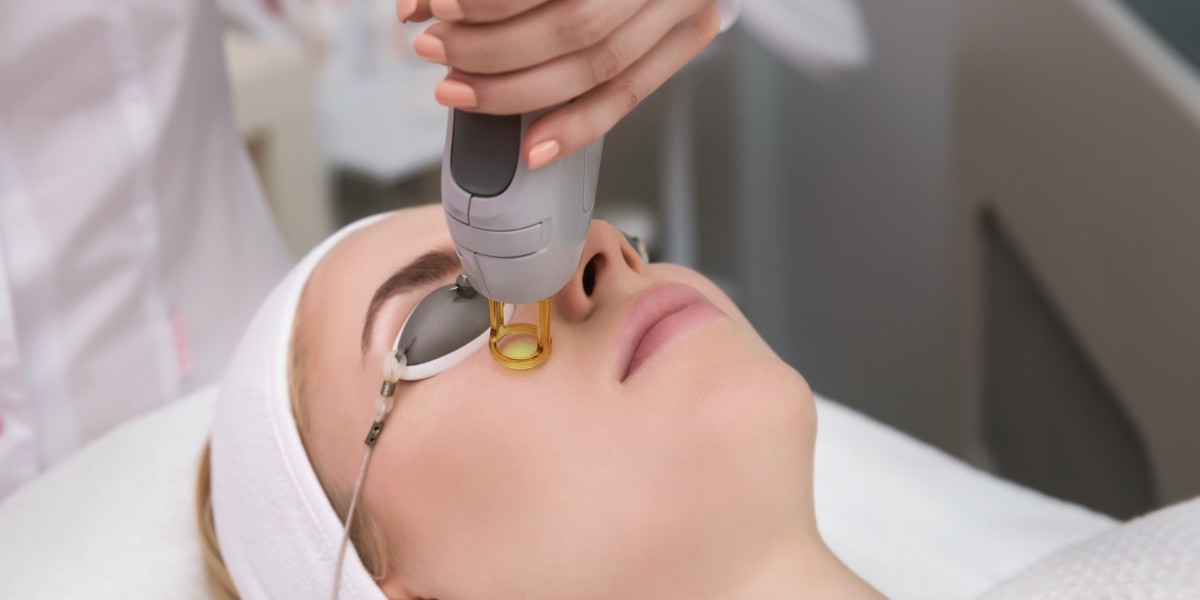When planning to undergo any aesthetic or dermatological procedure—such as fractional CO₂ laser, chemical peels, microneedling, or laser hair removal—proper preparation is crucial for achieving the best results and minimizing risks. Islamabad, with its unique climate and environmental factors, presents certain considerations for patients that should be taken into account before starting treatment. The city’s high altitude, varying humidity levels, and strong sunlight throughout much of the year can all affect the skin’s sensitivity and healing process. Preparing properly before treatment not only enhances safety but also optimizes the final outcome. Many people are now opting for fractional CO2 laser in Islamabad to effectively treat acne scars, wrinkles, and pigmentation.
Below are comprehensive pre-treatment preparation tips tailored for patients in Islamabad.
1. Schedule a Professional Consultation
The first and most important step is to schedule a consultation with a qualified dermatologist or aesthetic practitioner. During this session, your doctor will evaluate your skin type, medical history, and lifestyle to determine the most appropriate treatment plan. Honest communication about previous procedures, medications, allergies, and skincare routines is essential. For example, patients using certain acne medications or topical retinoids may need to pause them prior to treatment to avoid complications such as irritation or excessive sensitivity.
2. Protect Your Skin from the Sun
Islamabad receives a significant amount of sunlight year-round, and UV exposure can greatly influence how your skin reacts to treatments. Two weeks before your procedure, you should minimize sun exposure and consistently use a broad-spectrum sunscreen with an SPF of 30 or higher. Sunburned or tanned skin is more prone to irritation, hyperpigmentation, and delayed healing. Avoid outdoor activities during peak sunlight hours, usually between 10 a.m. and 4 p.m., and wear protective clothing, hats, and sunglasses whenever possible.
3. Stop Using Certain Skincare Products
Many cosmetic products contain active ingredients such as retinoids, glycolic acid, salicylic acid, and benzoyl peroxide. While these compounds are effective for improving skin texture and controlling acne, they can make your skin more sensitive to laser or exfoliating treatments. It’s generally advised to stop using such products at least five to seven days before your procedure, unless otherwise directed by your dermatologist. This helps prevent excessive redness, peeling, or irritation after treatment.
4. Stay Hydrated and Maintain a Balanced Diet
Healthy, hydrated skin heals faster and responds better to aesthetic treatments. In the days leading up to your appointment, drink plenty of water and eat a balanced diet rich in vitamins, minerals, and antioxidants. Foods containing vitamin C, vitamin E, and omega-3 fatty acids are particularly beneficial for maintaining skin elasticity and reducing inflammation. Limiting caffeine, alcohol, and salty foods can also help prevent dehydration and swelling.
5. Avoid Waxing, Threading, or Harsh Exfoliation
If your treatment area includes the face or body regions where you usually remove hair, avoid waxing, threading, or depilatory creams at least one week before the procedure. These methods can irritate or damage the skin barrier, making it more vulnerable to side effects during treatment. Similarly, refrain from scrubbing or using harsh exfoliants, as they can cause micro-injuries that increase the risk of post-procedure redness and sensitivity.
6. Stop Smoking and Limit Alcohol Intake
Smoking can restrict blood flow and reduce oxygen supply to the skin, slowing down healing and diminishing treatment results. Alcohol, on the other hand, can dehydrate the body and increase swelling or bruising. Patients are advised to stop smoking and limit alcohol intake at least 48 to 72 hours before treatment. A healthier circulatory system and hydrated skin support faster recovery and enhance the final outcome.
7. Inform Your Doctor About Medications
Certain medications and supplements can increase bleeding risk or affect how your skin responds to treatment. Blood thinners, anti-inflammatory drugs, and even herbal supplements like ginkgo biloba or fish oil should be discussed with your doctor beforehand. Your practitioner may recommend pausing or adjusting these medications in consultation with your primary physician to ensure safety during and after the procedure.
8. Perform a Patch Test if Recommended
For patients undergoing laser or chemical treatments for the first time, a patch test may be recommended to check for allergic reactions or unusual skin responses. This test involves treating a small area of skin to observe how it reacts over the next 24 to 48 hours. Performing a patch test helps prevent adverse reactions when the full treatment is carried out.
9. Prepare for Downtime
Depending on the treatment type, you may experience temporary redness, swelling, or mild peeling afterward. Islamabad’s dry climate can exacerbate post-treatment dryness, so plan to stay indoors and use gentle, fragrance-free moisturizers to maintain hydration. Prepare any post-treatment skincare products recommended by your dermatologist in advance. It is also wise to schedule the procedure when you can rest for a few days, avoiding social events or sun exposure immediately afterward.
10. Arrive with Clean, Makeup-Free Skin
On the day of your procedure, ensure your skin is completely clean and free from makeup, lotions, or perfumes. These substances can interfere with the laser or chemical agents used during treatment and may increase the risk of irritation. If you are receiving a facial treatment, avoid applying any skincare products that morning unless specifically instructed by your dermatologist.
Conclusion
Proper pre-treatment preparation is the foundation of a successful cosmetic or dermatological procedure. For patients in Islamabad, special attention to sun protection, hydration, and skin sensitivity is particularly important due to the city’s climate and UV exposure levels. By following your dermatologist’s recommendations, avoiding irritants, and maintaining good overall skin health before the procedure, you can enhance safety, achieve better results, and ensure a smoother recovery process. Careful preparation not only optimizes the effectiveness of your chosen treatment but also helps you maintain long-lasting, radiant, and healthy skin.






